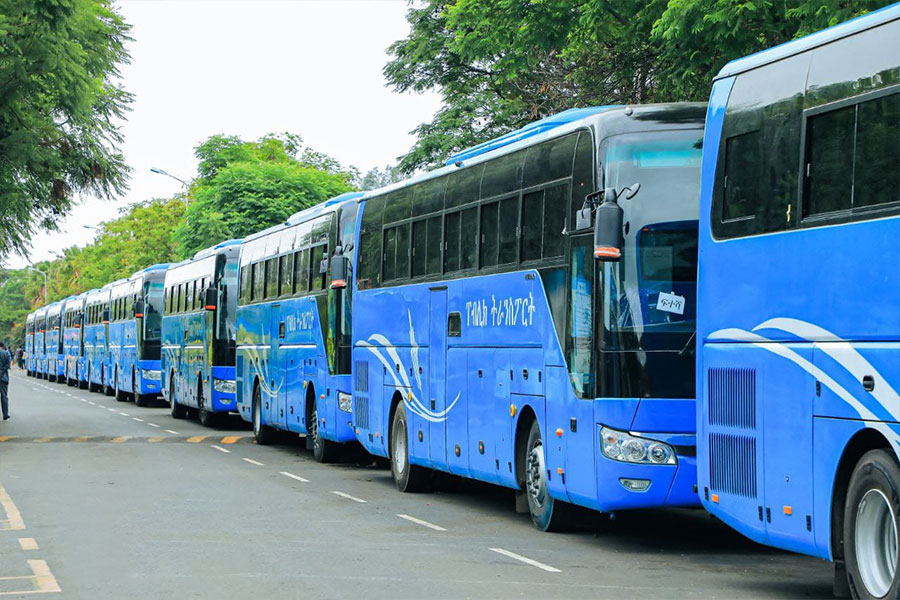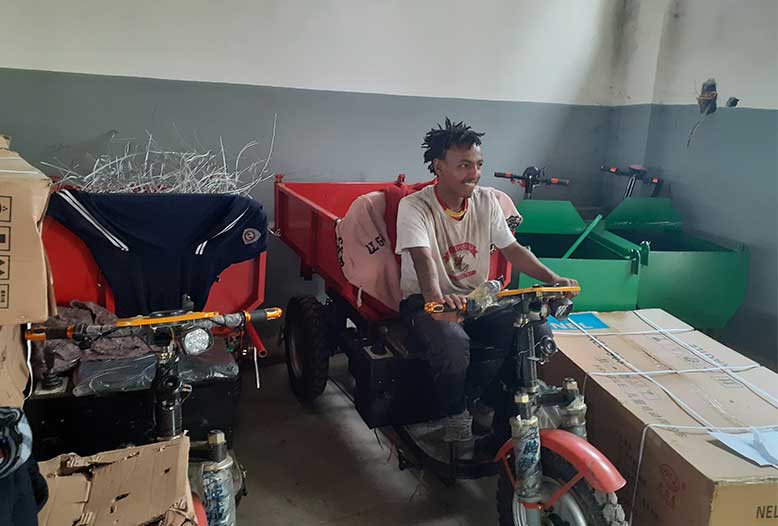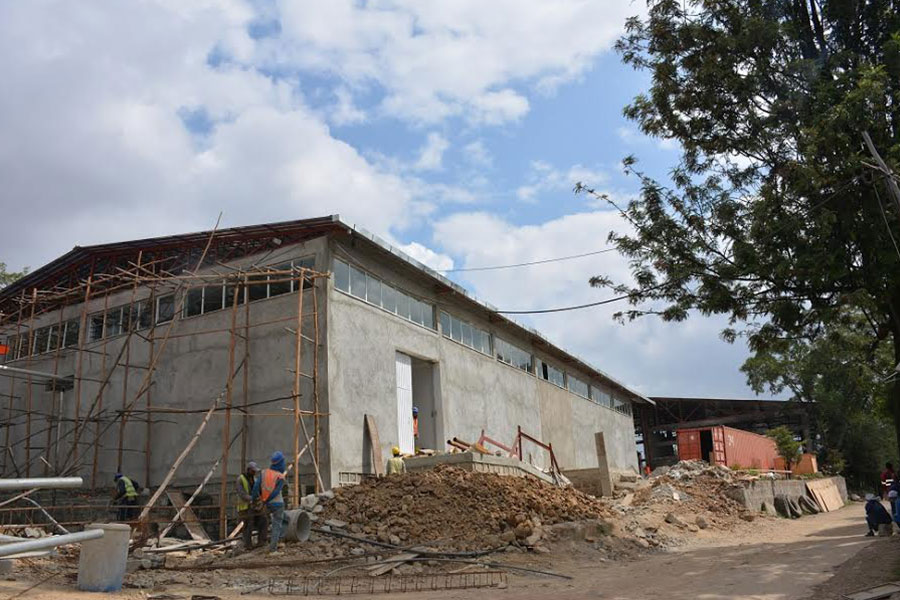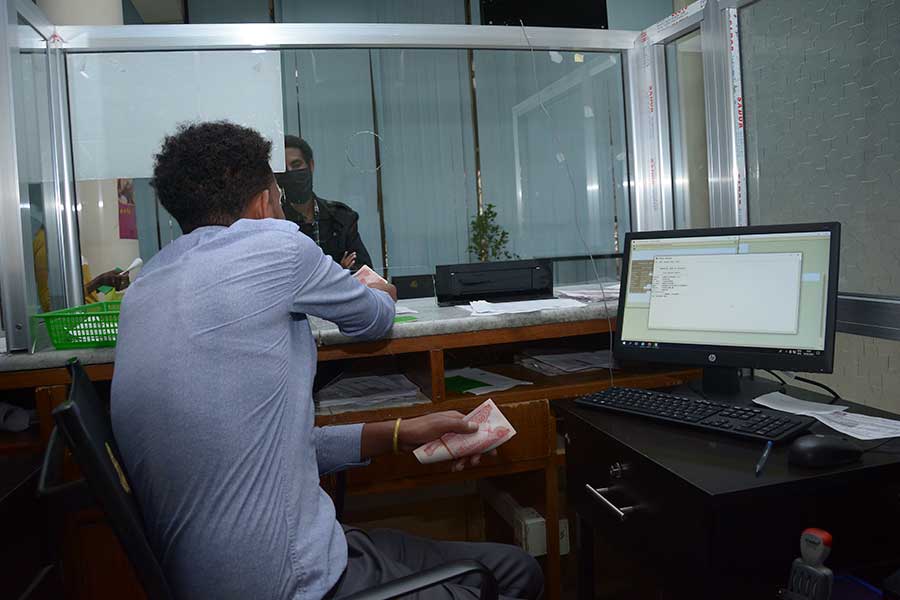
Fortune News | Oct 12,2019
Apr 17 , 2020
By Eden Sahle ( Eden Sahle is founder and CEO of Yada Technology Plc. She has studied law with a focus on international economic law. She can be reached at edensah2000@gmail.com. )
Every disaster brings with it the opportunity for resilience and pushes us to work harder for a solution. If there is a silver lining in the middle of this crisis, it is the chance to observe students and professionals who have been given an opportunity to implement their skills and inventions.
Is it not motivating to see the country finally look to in-house solutions instead of going elsewhere for answers?
Anyone who visits hospital warehouses around the country used to find many pieces of medical equipment that broke just a few months after they were purchased - only now is the country using the skills of biomedical engineers to repair these machines. Also, all across the country, manufacturers have gone into overdrive to produce protective gear and material such as hand sanitizer for use in a time when personal hygiene is extremely critical.
These initiatives could have come in handy at any time. Hospitals in Ethiopia are typically overburdened with patients with preventable diseases such as cholera, amebiasis, giardia and typhoid fever. But better late than never.
This is just one example. Ethiopia has never been able to properly express and stimulate its local capacity. But this pandemic is showing that we have the tools and knowledge right here and that it is up to us to utilise these resources. The Ethiopian government needs to recognise this and create an enabling environment to establish systems that allow the public to actively engage economically.
The country cannot thrive without using its available skilled human resources, which can also save a chunk of foreign currency. The cash can be allocated to create the conducive, affordable, and innovative environment that the country desperately seeks. This will drive not only economic growth but also institutionalise proper systems that can support change makers.
The current crisis comes at a time of severe macroeconomic challenges. But because of inflation, public debt and the shortage of foreign currency, the country has never been in good economic shape to begin with.
Leaders have thus had to find a way to tackle the crisis at hand but with little else at their disposal beside local talent and capacity. This means the economic system should be geared even more toward inclusivity, opening up opportunities to those with ideas, allowing the country to unlock its untapped economic and social potential.
Had it not been for this pandemic, which has forced leaders to look for in-house solutions, the innovative ideas we see now would have stayed in and died in the heads of the individuals who thought of them. It tells us that, in reality, we have always had it in ourselves to rise to the challenges that this crisis presents and that we can be more self-reliant if we aspire to that goal.
Unless Ethiopia finds its way out from being an aid-dependent economy, it is difficult to envision prosperity. Although foreign aid that targets humanitarian needs caused by drought and conflict is vital, the rest is doing us greater harm than good. It fuels corruption and disincentivises our leaders from looking for actual solutions.
Our best path forward is to create an inclusive political and economic system that can offer opportunities for those who work for them the hardest. It also lies on having checks and balances in place to ensure that resources are allocated democratically to those that can use them most productively.
Our failure to become “developed” is mostly tied to the problems rooted in the political structure and the leadership pitfalls prevalent in the country. If leaders manage to mobilise citizens to actualise development visions, there is no way that we cannot attain development goals. This obviously requires leaders who are disciplined and skilled enough to navigate challenges.
We must hasten to realise our potential. The advantage of the crisis has been to show that we have no one but ourselves to depend on when we most need help. We can realise our dream of self-reliance by creating inclusive economic institutions capable of distributing resources where they will have the maximum benefit to everyone.
What we have at the moment is a defective system. It needs to be maintained to respond to the current challenges prevalent in the country. Opportunities must be created and the system in place needs to encourage innovation. Then, when a crisis such as this strikes, we will not be terrified, but confident in the capacity of our professionals, institutions and systems and able to rise to the challenge.
PUBLISHED ON
Apr 17,2020 [ VOL
21 , NO
1042]

Fortune News | Oct 12,2019

Fortune News | Aug 13,2022

Advertorials | Jul 24,2024

Commentaries | Jan 23,2021

Fortune News | Sep 28,2019

Radar | May 13,2023

Commentaries | Sep 14,2024

Radar | Jul 20,2019

Fortune News | Feb 09,2019

Fortune News | Sep 19,2020

Dec 22 , 2024 . By TIZITA SHEWAFERAW
Charged with transforming colossal state-owned enterprises into modern and competitiv...

Aug 18 , 2024 . By AKSAH ITALO
Although predictable Yonas Zerihun's job in the ride-hailing service is not immune to...

Jul 28 , 2024 . By TIZITA SHEWAFERAW
Unhabitual, perhaps too many, Samuel Gebreyohannes, 38, used to occasionally enjoy a couple of beers at breakfast. However, he recently swit...

Jul 13 , 2024 . By AKSAH ITALO
Investors who rely on tractors, trucks, and field vehicles for commuting, transporting commodities, and f...

Jul 5 , 2025
Six years ago, Ethiopia was the darling of international liberal commentators. A year...

Jun 28 , 2025
Meseret Damtie, the assertive auditor general, has never been shy about naming names...

Jun 21 , 2025
A well-worn adage says, “Budget is not destiny, but it is direction.” Examining t...

Jun 14 , 2025
Yet again, the Horn of Africa is bracing for trouble. A region already frayed by wars...